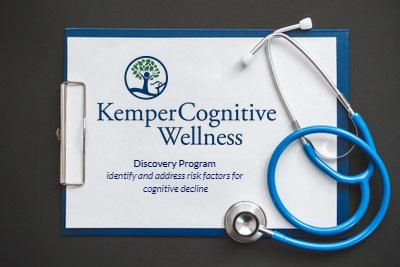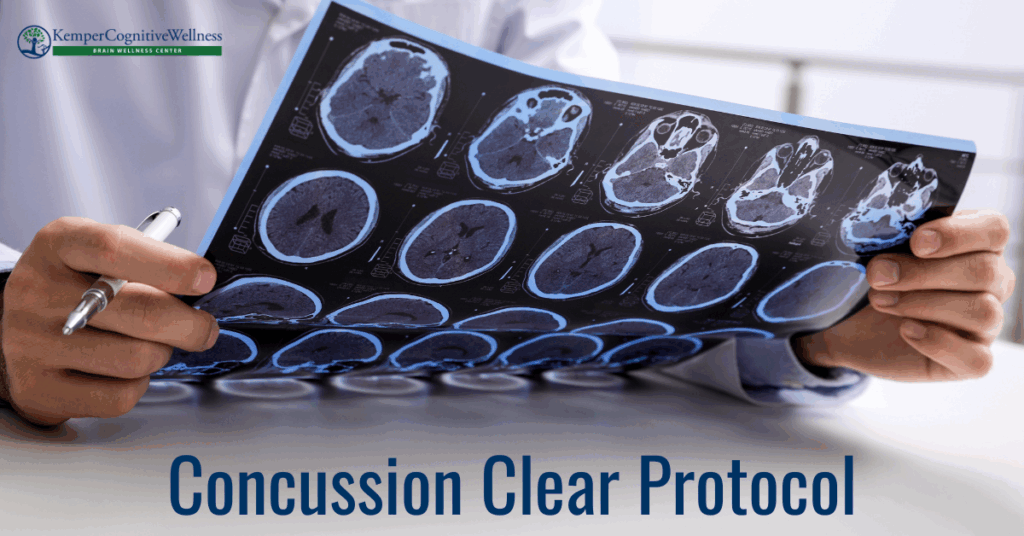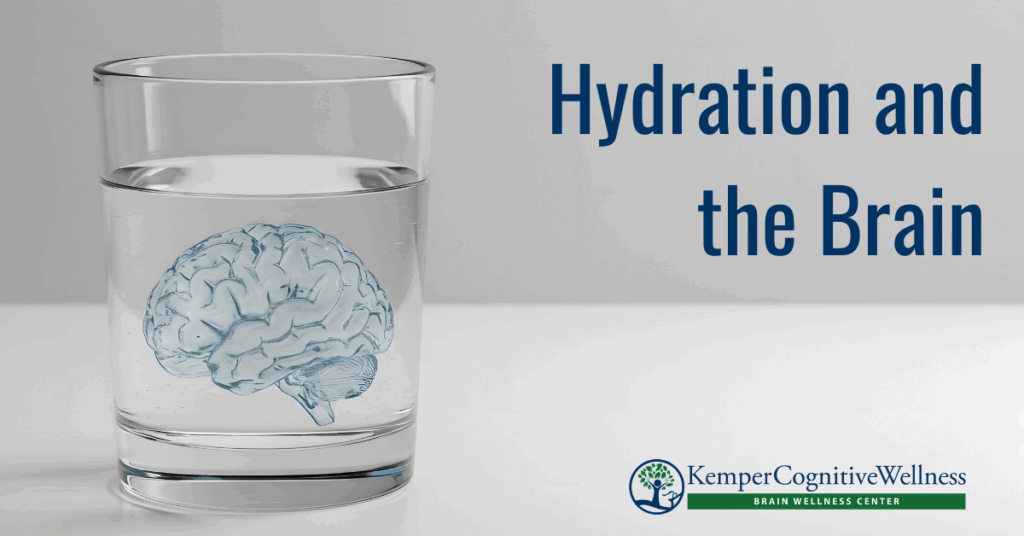By Dr. Nate Bergman, Chief Scientific Wellness Officer
Did you know that memory loss starts as early as age 45? Of course, we all hope to have our wits about us when we are 90 or 100, but how common is that? You probably think memory loss and cognitive decline are inevitable…right?!
The truth is a lot more nuanced. While there are factors that decline with age, there are definitely things you can do to delay or prevent memory loss.
Factors Impacting Brain Health
Certainly you know that the food you eat, the exercise and movement you do, how long and how “well” you sleep, and how you manage challenges and stressors in your life are the most fundamental drivers of staying well and healthy. Things like too much alcohol, cigarettes, or other drugs can have a harmful impact on your brain health over time as well. All of that may already be obvious to you.
But what about these…are any of these a surprise to you?
- Your mood strongly impacts your brain’s performance and low mood/depression increases your risk of dementia by 50%.
- How much you have learned as well as your ability to learn impacts whether or not you will get dementia.
- Having unresolved psychological/emotional traumas increases the chances of getting Alzheimer’s.
- Obesity, diabetes or high blood pressure in midlife significantly raises your risk of getting Alzheimer’s
- Your gut health can impact your brain now and probably in your future.
- Your environment (home, office, car) can impact your brain health.
- Certain medications can raise your risk of dementia.
- Unresolved inflammation and changes in your hormones can impact mental performance and raise the risk of Alzheimer’s and dementia.
- Micronutrient deficiencies (such as b-vitamins, zinc, and copper) can impact your day to day brain functioning.
When Symptoms Start
Our experience is that right about the time people start raising children and engage in “the rat race” of life is about the time they start to feel significant changes in their brains and bodies. For those at risk of Alzheimer’s and/or who have family history of this devastating disease, any little change in cognitive performance can really sound the internal alarm bells. For example, if someone can’t recall why they walked into a room, a friend’s name, what they are shopping for, or simply feel like her/his brain isn’t firing as fast as it used to, it can trigger worries that maybe they are developing Alzheimer’s.
Rather than panicking, though, I would suggest you look at this as an opportunity to get checked out. Prevention and optimization are not only key, and it is now possible that up to 90% of Alzheimer’s and dementia may be preventable.
Prevention as a Cure?
2018 was a turning point for Alzheimer’s disease. Folks like Dr. Richard Isaacson at Cornell and others have been pushing for legitimacy in the scientific community for years and it appears that 2018 was a breakthrough year for all of us. There are now multiple prevention trials rolling or recruiting, looking to prevent or stave off cognitive decline and Alzheimer’s disease (eg CEDAR, FINGER, US Pointer trials). This means that the scientific community is starting to take a rigorous look at what lifestyle interventions – namely, food, sleep, exercise, brain activity, stress reduction – can be applied to lower the likelihood of developing dementia.
While the science is being clarified, what can be done in the mean time? Kemper Cognitive Wellness is already employing advanced diagnostics to help you know your risk and optimize your brain function. No matter where your mood and brain performance levels stand, our testing packages and comprehensive lifestyle and health optimization profiles can help you. At Kemper Cognitive Wellness, we identify potential root causes that drive sub-optimal brain function and in some cases give rise to Alzheimer’s and other dementias.
What Your Genetics Say About Your Risk
Maybe you heard that there is “a gene” that can tell you if you are at higher risk for Alzheimer’s. In fact, there are many genes that raise someone’s risk of developing Alzheimer’s, but the gene associated with the greatest risk is ApoE4 (Apolipoprotein E4). This gene is inherited from your parents. An individual can have one or two (or zero) copies. If Alzheimer’s runs in your family you may very well have a copy of this gene. About 25% of people living in the US have at least one copy of the ApoE4 gene. Having a single copy of ApoE4 about doubles your lifetime risk of getting Alzheimer’s. Having two copies may increase that risk 3-5 times higher chance of getting Alzheimer’s than people that don’t have a copy of ApoE4.
Your Genetics Are Not Your Destiny
The medical ethics community has debated the merits of checking individuals for ApoE4. Interestingly, by and large medical ethicists have discouraged people from getting tested because for years the belief remained that there isn’t anything you can do about it… Well, the science no longer supports this perspective. Again, there is mounting evidence of preventative measures to stave off Alzheimer’s. In fact, we have seen clients with clearly diagnosed Pre-Alzheimer’s – a condition called Mild Cognitive Impairment or MCI – improve considerably. One woman we know could no longer read books and after starting interventions employed in our Discovery Program and other Kemper Cognitive Wellness programs was able to go back to be able to read three books in three months! Amazing! Especially since this Alzheimer’s is supposed to be an incurable, non-preventable death sentence.
Just Get Tested – Discover Your Risk & What to Do About It
So should YOU get tested? Now that we have laid out some of the science around Alzheimer’s prevention, why would you wait? At Kemper Cognitive Wellness, we’ve put together an extensive panel of biomarkers and blood labs that will help you navigate your situation and give you options to best protect your brain and body against the ravaging effects of Alzheimer’s and other brain and mood disorders such as Anxiety, ADHD, head trauma/mTBI, Depression, and others.
Side Effects of the Program
Participants can expect healthy weight loss, reduced blood pressure, improved skin, more energy, improved blood sugars and cholesterol numbers, less overall body pain and inflammation.
Call now to schedule your evaluation and we’ll set you up with a plan of action designed specifically with YOU in mind. Contact us at 216-337-1400 today.





